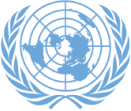Keynote address delivered by the Permanent Representative of Guyana to the United Nations, Ambassador Michael Ten-Pow, at the GALA Fundraiser of the Caribbean Action Network Foundation Initiative (CANFI) on Saturday, 15 December 2018
Thank you, Sandra, for your kind words and huge congratulations to you and your Board for putting together this wonderful Gala, and for such a worthy cause.
It’s always a joy for me to be among my Caribbean people, especially when our purpose is to give back to our home countries in the Caribbean and to network informally so that we can come up with creative ways to remain engaged with our respective countries and with the region as a whole.
I am here quite by accident, as you were told, because my colleague, the Permanent Representative of Trinidad and Tobago, is in Poland, where the Conference on Climate Change has been extended until today. And you know what an important issue climate change is for the Caribbean where we’re looking for ways to build resiliency in order to better withstand the impacts of hurricanes and other weather-related events that are occurring more frequently and increasing in severity as a result of global warming.
But the views of the Ambassador of Trinidad and Tobago and my views are the same and so I am pleased to offer the following brief reflections on our Caribbean diaspora and how we might mobilize it more effectively in the service of development and a better life for our brothers and sisters back home.
One of the realities of our Caribbean is the high rate of outward migration, which is among the highest in the world and this has been going on for generations. In Guyana, four out of every persons with a post-secondary education migrates. Only one in five remains. I remember when I myself returned home after graduate school in Europe. Out of the entire intake of classmates who attended high school with me – 150 of us – only four or five were living in Guyana at that time. The others had all migrated.
There are those who say that the brain drain has its pros and cons, and indeed it does. After gold, remittances from abroad are the highest foreign exchange earner for Guyana. This is true for many other Caribbean countries. And the more highly educated you are, the greater your earning power in the diaspora and the more you are able to remit to friends, family and charitable organizations back home.
One has to acknowledge also that migrants generally have opportunities to develop their potential abroad which they might not have had at home. We know of so many Caribbean nationals who have reached the top of their professions here in the United States. Alexander Hamilton, one of the Founding Fathers of the United States, was born and grew up in Nevis. Rihanna is of Barbadian and Guyanese parentage. And I discovered a few weeks ago that one of my favorite political commentators on TV, MSNBC, Joy Reid, is the daughter of a Guyanese mother and Congolese father. So when you migrate, you generally have opportunities for professional growth and development that you may not have in your home country.
But the big con, the big disadvantage is that the high rate of migration deprives our countries of its human capital, the pool of skilled people they need to develop. You cannot develop a country with a largely unskilled labor force, especially in this age of the knowledge economy. You need people with the technical and professional expertise to implement projects on the ground and to come up with creative solutions to the problems we face in nearly every sector of our economic, social and political life. Instead, we find ourselves in the position where a great deal of our scarce resources is spent on training our young people, who end up giving their services to their adopted countries.
But we also have to ask ourselves why are we losing our skilled people at this unsustainable rate? And if we’re honest, we will acknowledge that, in addition to the pull factors – reuniting with your family, opportunities for better paying jobs, and for a good education and better prospects for our children – there are also push factors.
The high level of crime, for example, including homicides and violence against women. Many of the development experts with whom we work at the United Nations warn us that the high level of crime has a measurable impact on economic activity because it discourages potential investors and raises the cost of doing business. The rate of youth unemployment is very high in the Caribbean. In Guyana it is around 40 per cent, according to a recent Caribbean Development Bank report. Add to this, the tribalism that characterizes some of our societies that are divided by race, class and politics.
And so what do we do? I believe that many of you here this evening would rather be living in the Caribbean if our countries could seriously address some of the factors that pushed you to emigrate in the first place. And I know that most of you are not asking for perfection, just a sense that the country has a vision of where it’s going and a plan for getting there. Once people feel that the country is heading in the right direction, they will overlook some of the temporary shortcomings.
And you here in the diaspora, you have a role to play in making our countries more attractive for people to remain. I know that there is a reservoir of goodwill towards our countries out here, but we need organizations like CANFI to tap into that goodwill and mobilize our communities abroad to help build our countries. But let me hasten to say that helping, contributing does not mean that you have to give up the lives you’ve built here, where your job, your family and friends are, to return home. This is the 21st century. There are tools and ways available for you to make your contribution from right here.
You can support civil society and charitable organizations working on the ground back home, your hometown associations, your alumni associations of the school you attended. Next time you plan a trip home, take a few days to volunteer in a hospital, a school, an advertising agency or engineering firm, whatever your skills are. Give a talk to a class in your old school. Stimulate their imaginations by sharing your life experiences. Development begins in the imagination, when you begin to see things not as they are but as how they could be.
And that is why organizations like CANFI are so critical to the effort to mobilize the diaspora, especially since CANFI represents a Pan-Caribbean effort, not limited to Jamaica, or to Trinidad and Tobago, or to Guyana. This evening’s Gala will help raise funds for a clinic in Jamaica, but it has also brought together a large number of Caribbean nationals, each of you no doubt accomplished in your field and with something to give back. The very fact that you’re here means that your heart is in the right place. And so I am confident that CANFI will grow from strength to strength and that you will lift up and sustain Sandra and the Board of her Foundation.
One of the things I would encourage CANFI to do is to help build a database of skills and resources available in the diaspora, perhaps in collaboration with other organizations, so that Governments, the private sector and civil society organizations in the Caribbean can tap into the database to see what is available and how best these skills and resources, including ordinary people willing to volunteer their time, can be utilized most effectively.
At the United Nations, other countries recognize the Caribbean as a special place. A string of islands and territories stretching from off the coast of the Carolinas to the mainland of South America. We are a free people living in parliamentary democracies and seen as voices of moderation in a polarized world. We are known for punching above our weight. In athletics, we rule the world in track as we once did in cricket. The United Nations has just declared reggae music to be an international cultural treasure. We have produced three Nobel prize winners, two from the same country, St. Lucia, which has a population of 180,000 people. A young girl from a rural village in Guyana was taken to England by her parents at the age of 9 and grew up to become part of the British nobility and Speaker of the House of Lords.
We are a wonderfully diverse region, a fusion of cultures, ethnicities and languages. That is our heritage.
Let us embrace it fully.
I want to conclude with a little story from my own experience.
[Elevator anecdote]
And that is our Caribbean.
Thank you all for your kind attention.


